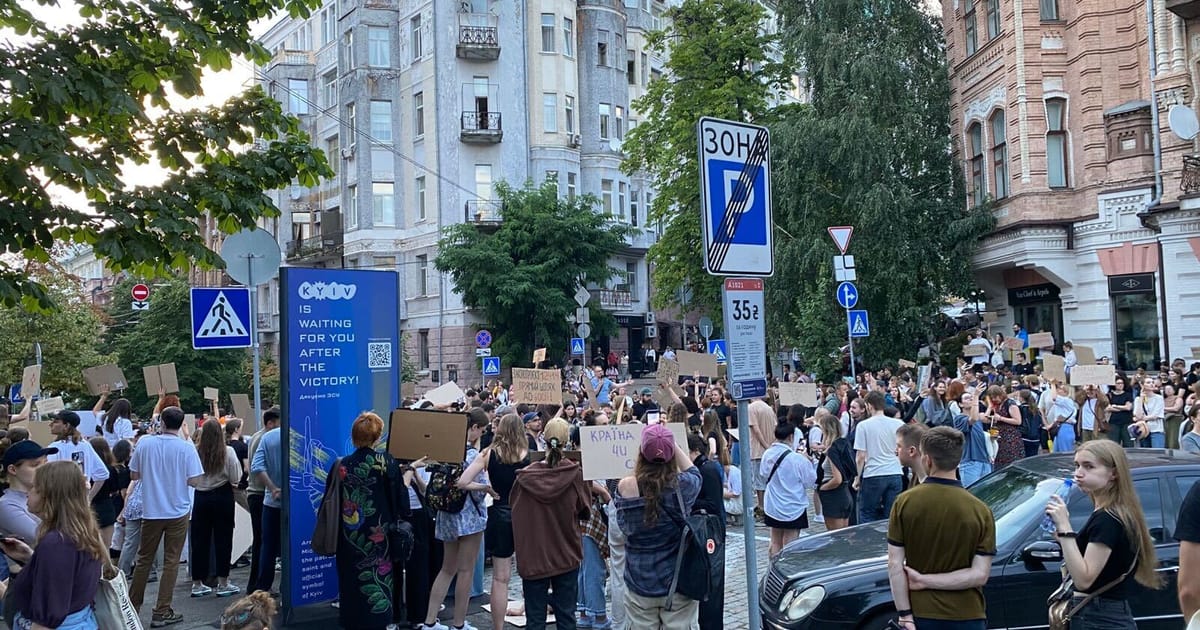

In recent days, the global community has been observing significant developments in both Ukraine and Gaza, bringing humanitarian concerns and diplomatic maneuvers to the forefront. Stories emerging from these regions evoke a complex tapestry of global politics, human welfare, and peacebuilding efforts.
In Ukraine, demonstrations took place in Kyiv, marking a rare public protest since Russia’s full-scale invasion in 2022. Citizens gathered in response to a new law signed by President Volodymyr Zelenskyy targeting anti-corruption watchdogs. This legislative move sparked concern among those who view it as a potential threat to the integrity of ongoing efforts to address corruption in the country. Despite the tensions, the atmosphere was charged with a sense of civic duty, as people peacefully voiced their commitment to transparency and accountability in governance.
Meanwhile, a parallel narrative unfolds in the sphere of international diplomacy as Ukraine and Russia have agreed to engage in peace talks in Istanbul. However, amid these efforts for dialogue, Ukraine faced an unsettling night with 42 drone strikes launched by Russia, causing numerous injuries. The path to peace appears fraught with challenges, yet the decision to return to the negotiating table holds a whisper of hope for a resolution grounded in understanding and diplomacy.
Crossing to another part of the globe, the situation in Gaza is drawing international attention due to its severe humanitarian crisis. Reports have surfaced of over 100 people who have succumbed to starvation, attributed to significant reductions in aid reaching the region. This stark reality was echoed by European Commission President Ursula von der Leyen, who described the distressing scenes as ‘unbearable’. The urgency to address these human rights concerns is palpable, with a global call for intervention to ensure basic human needs are met for the Gaza populace.
Adding a spiritual dimension to the discourse, Cardinal Pierbattista Pizzaballa, the Catholic Latin patriarch of Jerusalem, recently visited Gaza, witnessing firsthand the severe hunger resulting from restricted food and medical supplies. His depiction of the policies as ‘morally unjustifiable’ accentuates the moral imperative for action to alleviate the suffering of those trapped within this protracted conflict.
The complexity of Gaza’s situation was further underscored by the statements from the head of the UN Palestinian Refugee Agency, portraying aid points as ‘sadistic death traps’ amidst the ongoing violence. The senior UN official’s warning of a collapse of ‘last lifelines’ highlights a dire need for sustainable aid solutions and protection for the vulnerable. These narratives, filled with human struggle and resilience, underscore the necessity for global responsibility in conflict zones.
As the world witnesses these unfolding events, there remains a profound hope that diplomatic dialogues and humanitarian efforts can pave the way towards healing and reconciliation. These challenges, while daunting, offer a renewed opportunity for international collaboration and mindful contemplation on the path to peace.
In conclusion, these developments in Ukraine and Gaza underscore the critical intersection between governance, diplomatic negotiations, and humanitarian aid. The global community’s response will significantly shape the future landscape of these regions, offering a beacon of hope through collaboration and empathy.
Source: {link}
